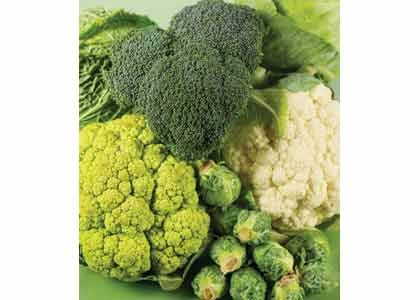While no single food or ingredient can prevent people from getting cancer, research has shown a link between excess body fat and various cancers. A poor diet that’s high in fat can contribute to excess body fat, which the American Institute for Cancer Research has linked to higher risks for developing cancers of the esophagus, pancreas, colon and rectum, and gallbladder, among others.
The AICR notes that research on foods that fight cancer is ongoing, but the following are some of the foods that can play a role in cancer prevention.
Apples
Apples are a good source of fiber, which can help men and women lower their cancer risk. Dietary fiber can increase feelings of fullness, which reduces the likelihood that people will overeat. Men and women who do not overeat are less likely to accumulate the excess body fat that increases their risk for various cancers. In addition, apples’ dietary fiber contains pectin, a polysaccharide that bacteria in the stomach can use to produce compounds that protect colon cells.
Broccoli
Broccoli is a cruciferous vegetable, and nearly all cruciferous vegetables, which get their name because their four-petal flowers resemble a cross, or crucifer, are great sources of vitamin C. Broccoli also is a great source of the B vitamin folate as well as potassium. The AICR notes that studies have shown folate helps to maintain healthy DNA and keep cancer-promoting genes inactive. But men and women should speak with their physicians regarding how much folate to include in their diets, as animal studies have suggested that high amounts of folate may promote development of certain types of cancer, including colon cancer.
Cranberries
Like apples, cranberries are high in dietary fiber and vitamin C. Diets high in foods containing vitamin C have been linked to a reduced risk for cancer of the esophagus. In addition, studies have shown that vitamin C protects cells’ DNA by trapping free radicals, which can damage the body, and inhibiting the formation of substances called carcinogens, which are capable of causing cancer in living tissue.
Legumes
Legumes include kidney and black beans, yellow split peas and red lentils. Dry beans and peas are great sources of fiber and good sources of protein, and each also make excellent sources of folate. In addition to their ability to contribute to the protection of colon cells, legumes also contain various phytochemicals, which researchers feel may decrease chronic inflammation, a risk factor for many cancers. In addition, these phytochemicals may increase the self-destruction of cancer cells.
While there are no magic foods that can guarantee men and women won’t one day develop cancer, there are many foods that research has shown are capable of reducing a person’s risk of developing this potentially deadly disease. More information on cancer-fighting foods is available at www.aicr.org. AC159460
